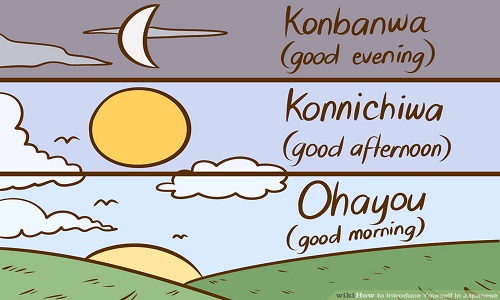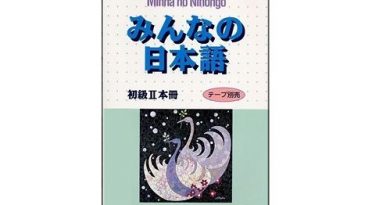Contents
- 1 Learn minna no nihongo lesson 14
- 1.1 6. Mondai
- 1.1.1 Exercise 1: Listen and answer questions
- 1.1.2 Exercise 2: Listen and select the corresponding picture
- 1.1.3 Exercise 3: Listen and choose true or false
- 1.1.4 Exercise 4: Give the true form of the verbs in the following table
- 1.1.5 Exercise 5: Choose the appropriate word, then give the true form of that word and fill in the blank
- 1.1.6 Exercise 6: Choose the appropriate word, then give the true form of that word and fill in the blank
- 1.1.7 Exercise 7: Read the following paragraph and choose true or false
- 1.1 6. Mondai
Learn minna no nihongo lesson 14
6. Mondai
To do the “Mondai” section, you need “minna no nihongo” book and audios for listening
Exercise 1: Listen and answer questions
With this exercise, you will hear the questions and answer. When listening, stop for 30 seconds to 1 minute in each sentence to write the answer. With the questions that you don’t hear clearly, listen them the second time. After listening 1 or 2 times to answer the question, you can listen again to hear each word clearly and copy it to improve your listening skill and remember words better.
今雨が降っていますか。(Is it raining now?)
2.
3.
4.
5.
…03−3123−1234.
Exercise 2: Listen and select the corresponding picture
For this exercise, before listening, you should look at the pictures to guess the content. When listening, memorize the keywords and compare them with the pictures to choose the best picture.
1.
男:佐藤さんはどこにいますか。(Where is Ms. Sato?)
女:1階でコピーしています。呼びましょうか。
(She is copying on the 1st floor. Shall I call her for you?)
男:ええ、すぐ呼んでください。(Yes, please call her for me now.)
女:はい、わかりました。(Yes, I got it.)
Answer: 2
2.
女:新大阪までお願いします。(Please take me to Shinosaka.)
男:はい。 (Yes.)
女:あの信号を左へ曲がってください。(Please turn left at that traffic light.)
男:はい。 (Yes.)
女:あの白いビルの前で止めてください。(Please stop in front of that white building.)
Exercise 3: Listen and choose true or false
With this exercise, the listeners will listen to the conversation, then there will be a key point about the problem that will be raised in the conversation. The listeners must choose whether the content is true or false according to what they has listened. If it is true, select 〇 (maru) and if it is false, choose ✖ (batsu). In this listening section, you should pay attention to the concluding sentence to see whether that sentence is given in a positive or negative form in order to avoid being “tricked” when listening.
1.
女:雨が降っていますね。いっしょにタクシーで帰りませんか。
(It’s raining. Shall we return by taxi together?)
男:あのう、きょうは車で来ましたから。いっしょにいかがですか。
(Well, I came by car today so how about we go together?)
女:ああ、そうですか。じゃ、お願いします
(Oh, I see. Then, please.)
2人はいっしょに車で帰ります。(The two people will return by car together.)
Answer:(〇)
2.
山田です。こんにちは。今週の土曜日にうちでパーティーをします。ミラーさんも来てください。木村さんも来ますよ。またあとで電話をかけます。
(This is Yamada. Hello. We will have a party at home this Saturday. Mr. Miller, please come to the party. Ms. Kimura will also come. I will call you again later.)
土曜日に木村さんのうちでパーティーをします。
(They will have a party at Kimura’s house on Saturday.)
Answer:(✖)
3.
男:カリナさん、その辞書ちょっと貸してください。
(Ms. Karina, please lend me the dictionary for a moment..)
女:すみません。今使っています。
(I’m sorry. I am using it now.)
男:じゃ、あとでお願いします。
(Well, please lend me later.)
男の人はあとで辞書を借ります。(The man will borrow the dictionary later.)
Exercise 4: Give the true form of the verbs in the following table
| 例: | 書きます | 書いて |
| 1 | 行きます | 行って |
| 2 | 急ぎます | 急いで |
| 3 | 飲みます | 飲んで |
| 4 | 遊びます | 遊んで |
| 5 | 待ちます | 待って |
| 6 | 帰ります | 帰って |
| 7 | 買います | 買って |
| 8 | 貸します | 貸して |
| 9 | 食べます | 食べて |
| 10 | 起きます | 起きて |
| 11 | 見ます | 見て |
| 12 | 勉強します | 勉強して |
| 13 | 来ます | 来て |
Exercise 5: Choose the appropriate word, then give the true form of that word and fill in the blank
1. 時間がありませんから、( )ください。
2. 今忙しいですから、 またあとで( )ください。
3.
Exercise 6: Choose the appropriate word, then give the true form of that word and fill in the blank
1.
……2階です。太郎君と( )います。
3.
Exercise 7: Read the following paragraph and choose true or false
1.( ✖ )
(Mrs. Tomoko came to her parents’ house with her husband and Taro.)
2.( ✖ )
(Taro goes fishing everyday.)
3. ( 〇 )
(Because the house is near the beach, the fish here is very delicious.)
(Mrs. Tomoko doesn’t have a car.)
Above is instruction to Learn minna no nihongo lesson 14 . See other lessons in category : learn Japanese with minna no nihongo or: Japanese for beginers.

